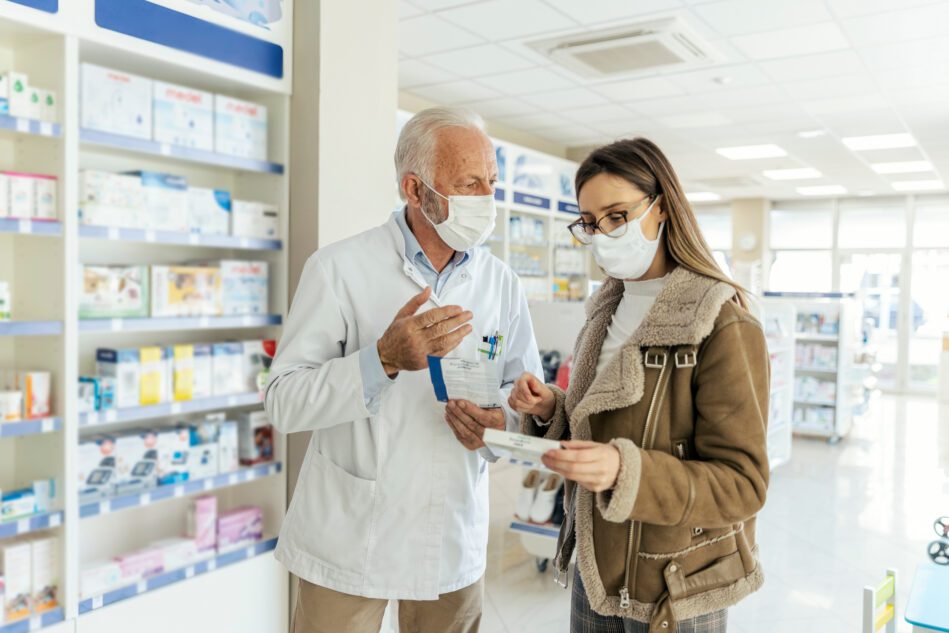Over my career as a pharmacist, I’ve been very conscientious about filling prescriptions accurately as prescribed. I’ve also made it a priority to focus on counseling patients on how to take their medications properly and informing them of potential side effects to look out for.
Now that I’m on the other side of the pharmacy counter, picking up prescriptions for myself. I’ve been prescribed the same medications as some of my patients. This has caused me to re-examine the importance of discussing medication side effects. You may have read the article on statins to lower cholesterol or the article on ACE inhibitors I wrote after I started taking them.
Having a background in pharmacy makes it pretty easy for me to evaluate the possible side effects of the medications I take to determine if the symptoms I experience are related to the medication or not. Then I can discuss this with my physician to determine the best approach to managing my disease while balancing the risks and benefits of continuing to take my medications.
When Side Effects Cause Problems
Action needs to be taken when the side effects of a medication begin to cause problems or lower quality of life. I’ve used my pharmacy knowledge when patients or family members were experiencing side effects or adverse reactions to the medications they were prescribed.
On numerous occasions, I’ve shared my perspective and advice with physicians, which led to a change or discontinuation of a particular medication. In most instances, changing or stopping a medication improved their quality of life.
I’ve been able to solve or eliminate problems associated with taking medications by using this knowledge and researching drug information in a systematic manner. I’ve also gained greater insight about the importance of understanding and sharing information on side effects and the potential risks of taking a medication versus the benefits the medication will provide.
It’s more difficult for most patients without a medical background to determine if they’re experiencing a drug side effect or adverse reaction. It’s even harder if there isn’t a family member to advocate for them or help them find the information they need. It makes me wonder how the average person with no pharmacy or medical background can navigate the system and find the information and answers they need.
Be Informed About Your Medications
You need to be taking an active role in your health. There is an element of patient responsibility to be informed about the medications you take. Patient education leaflets or information printouts are given with nearly every prescription dispensed… READ THEM. As a patient, you are responsible for knowing about your medications, how to take them effectively and how they treat your disease state. Learning more about your medications will make it easier to discuss them with your doctor. After all, you are an important member of your healthcare team!
You may have tried asking your pharmacist for more information to get your medication questions answered. But the ever-increasing pace and workload in pharmacies these days makes it very difficult for many pharmacists to focus on anything but making sure the correct medication is properly packaged, labeled and delivered to the right patient.
MedShadow can help. My role as a pharmacist is to educate patients about their medications, their potential side effects and possible adverse reactions they need to watch for. MedShadow’s mission is to help people understand the risks and benefits of medicines.
By doing so we hope to both protect lives and preserve quality of life by increasing awareness of the potential side effects of medicine. We provide evidence-based, straightforward information to help people better understand the risks and benefits of the medicines they are taking or may be prescribed. In this way, patients can take a more active role in their healthcare to preserve their quality of life.






